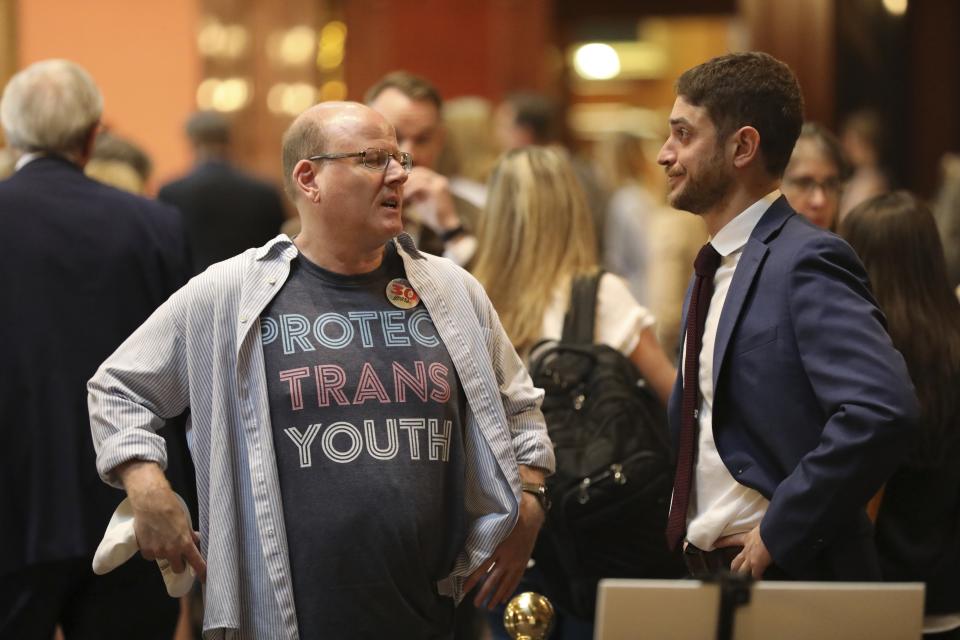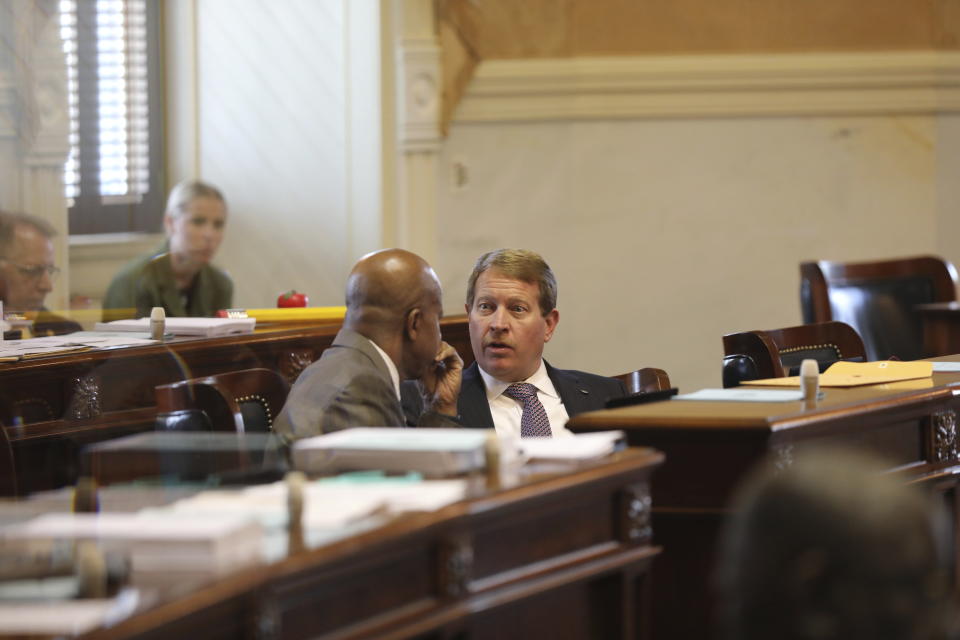South Carolina Senate takes up ban on gender-affirming care for transgender minors
- Oops!Something went wrong.Please try again later.
- Oops!Something went wrong.Please try again later.
COLUMBIA, S.C. (AP) — South Carolina's Senate is debating a ban on gender-affirming care for transgender minors with just days left in a 2024 session where they have largely avoided social hot-button issues.
The bill, passed by the state House in January during the General Assembly's opening days, would bar health professionals from performing gender-transition surgeries, prescribing puberty blockers and overseeing hormone treatments for patients under 18.
School principals or vice principals would have to notify parents or guardians if a child wanted to use a name other than their legal one, or a nickname or pronouns that did not match their sex assigned at birth.
Sen. Richard Cash started debate on the bill on Wednesday by asking the Senate to approve it. “We are talking about a serious subject. Nobody is taking this lightly,” the Republican from Powdersville said.
The bill's passage seemed likely.
The Senate has 30 Republicans, 15 Democrats and one independent. Democrats last week did not force an on-the-record vote when the proposal would have needed two-thirds approval to move to the top of the list of bills to be taken up. After about an hour of debate, the Senate adjourned to likely take up the issue again Thursday.
The bill also would prevent people from using Medicaid to cover the costs of gender-affirming care.
Doctors and parents testified before committees in both the House and Senate that people younger than 18 do not receive gender-transition surgeries in South Carolina and hormone treatments begin only after extensive consultation with health professionals.
They said the treatments can be lifesaving, allowing young transgender people to live more fulfilling lives. Research has shown that transgender youth and adults are prone to stress, depression and suicidal behavior when forced to live as the sex they were assigned at birth.
That testimony was most important to Brent Cox, who was waiting to talk to a lawmaker in the Statehouse lobby Wednesday in a “Protect Trans Youth” T-shirt. He said his heart breaks for the way children are treated when they may be dealing with transgender or LGBTQ+ issues but this issue was especially galling because lawmakers were going against doctors.
"I think people who are unqualified when it comes to medical decisions need to consult with their physicians, just like people rely on and would listen to their doctor if they had a cancer diagnosis," Cox said.
Supporters of the bill have cited their own unpublished evidence that puberty blockers increase self-harm and can be irreversible.
"This decision is of far greater consequences, for instance, than getting a tattoo, choosing a career or even a spouse," Cash said.
The proposal is part of a broader push to roll back transgender rights from Republican lawmakers in statehouses across the U.S.
But it hasn't been successful everywhere.
On Monday, the 4th U.S. Circuit Court of Appeals, which includes South Carolina, ruled that West Virginia’s and North Carolina’s refusal to cover certain health care for transgender people with government-sponsored insurance is discriminatory. The case is likely heading to the U.S. Supreme Court.
Kansas also failed to become the 25th state to restrict or ban such care for minors when its Legislature was unable to override a governor’s veto the same day.
South Carolina’s General Assembly has taken a slower, more deliberate approach to social issues during a session dominated by debates that led to a law allowing the open carrying of guns and a broad bill to encourage more energy generation by loosening regulations on power plant approvals.
The American Civil Liberties Union is tracking 31 bills in South Carolina it said target the LGBTQ+ community. The ban on gender-affirming care is the only one likely to pass and is less strict than the bans in other states.
Other conservative proposals like new regulations giving the state Board of Education oversight on school library books or banning vaccine mandates for private businesses appear unlikely to pass before the regular session ends May 9.





